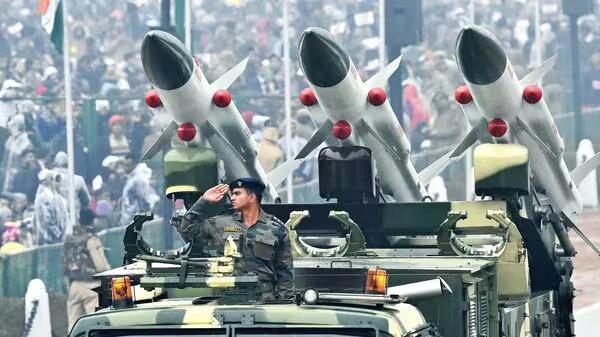India’s defence budget is likely to increase by Rs 50,000 crore, pushing the total defence allocation beyond Rs 7 lakh crore, government sources told NDTV. This additional fund will be part of the supplementary budget to be proposed during the Parliament’s Winter Session.
Current Defence Spending and Growth
The 2025-26 budget had already allocated a record Rs 6.81 lakh crore to the armed forces, marking a 9.2% rise from Rs 6.22 lakh crore in 2024-25. Defence spending remains the highest among all ministries, accounting for 13% of the total budget.
Focus Areas for Additional Funds
The extra budget will mainly support research and development, and the purchase of weapons, ammunition, and equipment. These moves align with the government’s focus on modernizing India’s military capabilities.
Defence Priorities Under Modi Government
Since 2014, the Narendra Modi administration has steadily increased defence spending, starting with Rs 2.29 lakh crore in 2014-15. The emphasis has been on strengthening domestic production and reducing reliance on imports.

Context: Operation Sindoor and Rising Tensions with Pakistan
The budget hike follows Operation Sindoor, India’s military response to the April 22 Pahalgam terror attack. The operation involved precise air strikes on terror camps in Pakistan and Pakistan-occupied Kashmir, highlighting India’s advanced defence technology.
Advanced Defence Systems on Display
Operation Sindoor showcased India’s air defence systems, including the indigenous Akash missile system and the Russian S-400, which successfully neutralized drone and missile attacks from Pakistan. India also tested the new Bhargavastra counter-drone system recently.
Expert Insights
Dr. Prahlada Ramarao, who developed the Akash missile system, described the system as capable of intercepting highly maneuverable aircraft. His tagline for Akash is “sara akash hamara” — meaning “the whole sky is ours.”
Political and Strategic Messages
Post-operation, Defence Minister Rajnath Singh emphasized increasing domestic defence production to ensure long-term security. Prime Minister Narendra Modi warned Pakistan against supporting terrorism and stated that India’s approach to terror has permanently changed, refusing to engage in Kashmir talks unless terrorist infrastructure is dismantled.
Background: The Pahalgam Attack
The Pahalgam attack by Lashkar-e-Taiba terrorists killed 26 people, many of them civilians, sparking India’s military retaliation through Operation Sindoor.
This increase in defence budget and modernization reflects India’s strategic resolve to strengthen security amid ongoing regional tensions.
